In January, culthread revamped its website. We particularly focused on everything ethical and sustainability-related, and chose to replace “Our Sustainability'' with “Our Commitment”. Here’s why.
Is using the word “sustainable” sustainable?
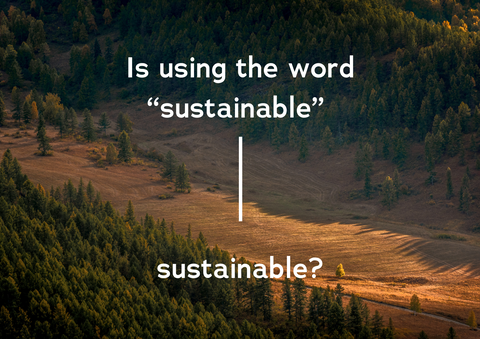
The word “sustainability” has become a buzzword, completely overused and over-commercialised. Everything is expected to be sustainable, which ends up meaning that nothing actually is. The word is thrown around as a credential, without actually being supported by any sustainable action, strategy, or method. Slowly but steadily, consumers are becoming aware of this, but currently we remain in a sea of greenwashing which is rather difficult to swim out of.
Sustainability originally meant the ability to maintain something continuously over time. Today, sustainable development is more commonly linked to “meeting the needs and aspirations of the present, without compromising the ability to meet those of the future,” as quoted by the UN. Unfortunately, that’s really broad and subjective – how do we define the needs of the future? Whilst the intention is good, it means a host of things can be qualified as “sustainable”.
As more and more companies throw the word “sustainable” around, we can’t help but wonder whether its usage helps its meaning, to meet the needs and aspirations of the present, without compromising the ability to meet those of the future. By normalising this term, brands that are actually socially and ethically responsible are not recognised, and lost in the mix.
Consumption is fundamentally unsustainable
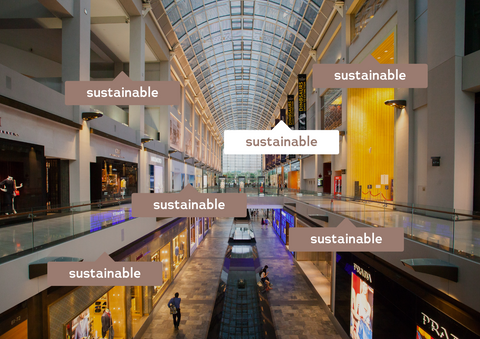
Using “sustainable” to describe fashion or other consumer products gives the illusion that this type of consumerism is sustainable – which it inherently is not. Us buying “stuff” at the rate that we currently do is fundamentally unsustainable. Take fashion for instance: the number of garments purchased per capita between 2000 and 2014 increased by about 60%, and keeps increasing at an unsustainable rate.
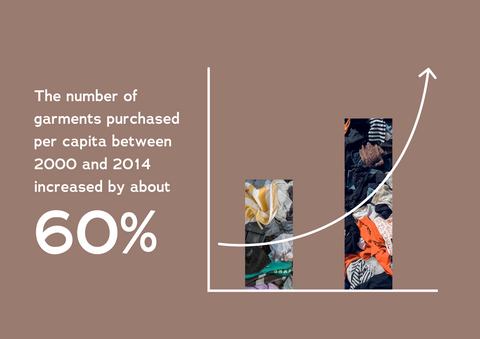
Consumerism - the culture of buying and using more products than necessary - means that more products are produced than necessary, and more products are transported than necessary, both of which have huge carbon footprints on our planet. 1.92 million tonnes of textile waste is produced every year. That means we are producing more, buying more, and wasting more. At this rate, we put our Planet in serious peril.
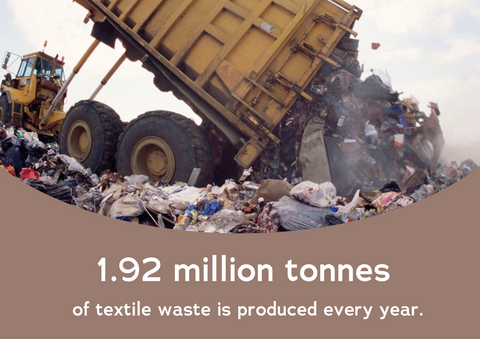
To discourage the misconception of purchasing clothes being sustainable, we no longer use the word “sustainable” to describe what we do. Rather, we use “sustainable” when describing the nature of materials or the specific actions we take in that direction.
Beyond sustainability, it’s about responsibility
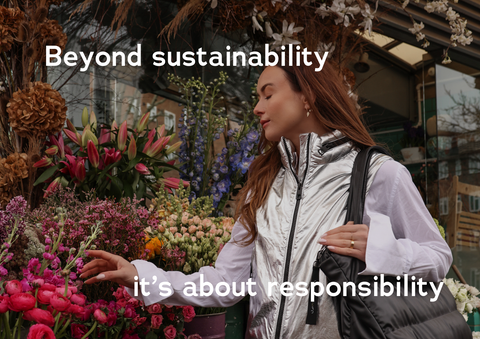
At culthread, we don’t see our responsibility as limited to so-called sustainability. It’s not simply about meeting the needs of the future, although that is certainly important. Rather, it’s also about ethics, and being responsible to our Planet, People, and Animals.
That means treating each with respect. Treating our Planet in a way that will leave a gentle footprint; treating our People so that they are happy and healthy; and treating our Animals without cruelty. culthread’s tag line is “Wear The Love,” because treating our Planet, People, and Animals with respect means loving each of them.
We use the word “commitment” because we’re committed to just that. We’re committed to setting the highest ethical standards with regards to our Planet, People, and Animals.
The word “commitment” embodies our dedication and ethics, which we believe is much more powerful than “sustainability” today.





